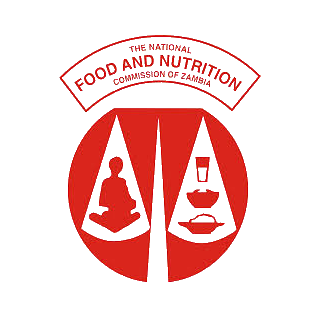REQUEST FOR EXPRESSION OF INTEREST FOR
CONSULTANCY FOR THE DEVELOPMENT OF THE FOOD AND NUTRITION SURVEILLANCE SYSTEM
PROCUREMENT METHOD: SIMPLIFIED SELECTION
- Background
Malnutrition remains a critical challenge in Zambia, affecting a significant proportion of the population, particularly children under the age of five. According to the Zambia Demographic and Health Survey (ZDHS) of 2024[1], 32% of children under five are stunted, reflecting chronic malnutrition. Additionally, 12% of children in this age group are underweight, and 3% are wasted, indicating acute malnutrition. These figures underscore the urgency of addressing nutritional deficiencies and improving food security. Recent reports from the Food and Agriculture Organization (FAO) reveal that approximately 45% of households in Zambia experience some level of food insecurity, further compounding the challenge[2].
Malnutrition’s implications extend beyond health outcomes. Stunting, wasting, underweight and overweight/obesity and dietary diversity can negatively impact cognitive development, productivity, and economic growth, perpetuating cycles of poverty and inequality. Addressing these challenges requires a coordinated and evidence-based approach to nutrition programming, which can be achieved through robust surveillance systems.
In response to this critical situation, the Government of Zambia, through the National Food and Nutrition Commission (NFNC), has prioritized the improvement of food and nutrition security as one of the key intervention in the fight against undernutrition in Zambia. With financial support from GIZ under the NiPN project, the NFNC aims to develop a robust Food and Nutrition Surveillance System (FNSS), envisioned as a tool for real-time monitoring and evidence-based decision-making, enabling the government and stakeholders to implement effective interventions to combat malnutrition and food insecurity nationwide.
- Objective
This consultancy aims to develop a functional and scalable Food and Nutrition Surveillance System that can be piloted in one district and rolled out nationwide. The system will aim to:
- Conduct District mapping of All food and Nutrition actors
- Monitor key nutrition indicators such as stunting, wasting, underweight, obesity and minimum dietary diversity.
- Track food security trends and provide early warnings for potential crises.
- Strengthen the capacity of stakeholders to collect, analyse, and use food and nutrition data effectively.
3 Scope of Work
The consultant will:
- The consultant will investigate and map out all the actors in the food and nutrition space that includes the roles they play
- Conduct a situational analysis of existing data systems and tools relevant to food and nutrition surveillance. This will include stakeholder consultations and a review of national and international best practices.
- Specify how this system will integrate with MNIS and DHIS2
- Design the architecture and framework for the FNSS, ensuring alignment with existing systems such as the Multisectoral Nutrition Information System (MNIS) and the District Health Information System (DHIS2).
- Develop data collection tools, indicators, and reporting templates for the FNSS, incorporating both quantitative and qualitative methodologies.
- Train stakeholders in the pilot district on the use of the FNSS tools and processes, emphasizing capacity-building and sustainability.
- Facilitate the pilot implementation of the FNSS in the selected district, including testing and validation of the system.
- Document lessons learned and provide recommendations for scaling up the system, addressing potential challenges and resource requirements.
- Deliverables
The consultant is expected to deliver the following outputs:
- Inception report detailing the methodology, work plan, and stakeholder engagement strategy.
- A detailed district map of all actors in the food system and their respective roles
- Situational analysis report highlighting gaps, opportunities, and recommendations.
- FNSS framework and tools, including user manuals and technical documentation.
- Training materials and workshop reports.
- Pilot implementation report, including findings, challenges, and lessons learned.
- Final consultancy report with comprehensive recommendations for scaling up the FNSS.
- Timeline
The consultancy should be conducted within 15 days as follows:
- Budget
Submit a full financial budget with consultancy fees
- Qualifications and Experience
The consultant must have:
- A master’s degree in nutrition, Public Health, or a related field.
- Has knowledge and experience in food systems.
- Proven expertise in designing and implementing surveillance systems.
- Strong analytical and report-writing skills.
- Familiarity with Zambia’s nutrition landscape and relevant stakeholders.
- TPIN Certificate
- Reporting and Supervision
The consultant will report to the NFNC and work closely with the NiPN project team. Regular updates will be provided to ensure alignment with project objectives. The consultant will also engage with district-level stakeholders to ensure local ownership and relevance of the FNSS.
- Submission of Proposals
Interested consultants are requested to submit their proposals, including a technical and financial proposal, addressed to:
THE EXECUTIVE DIRECTOR
National Food and Nutrition Commission
Plot 5112 Lumumba Road
P.O. Box 32669
LUSAKA
Send your cover letter, including a detailed CV of the team lead, copies of all relevant documents, and samples of previously completed work, to: nfnchr@gmail.com. The closing date for submissions is WEDNESDAY 16TH JULY 2025.
[1] Zambia Demographic and Health Survey (ZDHS) 2024.
[2] FAO State of Food Security Report 2023


